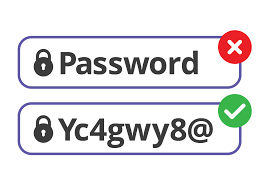In today’s digital age, our mobile devices have become an integral part of our lives. We rely on them for communication, banking, shopping, and even entertainment. However, with the increasing use of mobile devices, the need for mobile security has become more important than ever.
The Importance of Mobile Security
Mobile devices, such as smartphones and tablets, are susceptible to various security threats. These threats include malware, phishing attacks, data breaches, and device theft. Without proper security measures in place, your personal and sensitive information can be compromised, leading to financial loss, identity theft, and privacy invasion.
Mobile security is not just about protecting your device from physical theft; it also involves safeguarding your data and information from cybercriminals. With the ever-evolving nature of cyber threats, it is crucial to stay vigilant and take proactive steps to protect your mobile devices.
Tips for Mobile Security
Here are some essential tips to help you enhance the security of your mobile devices while on the go:
1. Keep Your Device Updated
Regularly updating your device’s operating system and applications is vital for maintaining its security. Updates often contain bug fixes, security patches, and new features that help protect your device from vulnerabilities and exploits.
2. Use Strong and Unique Passwords
A strong and unique password is the first line of defense against unauthorized access to your device. Avoid using common passwords or personal information that can be easily guessed. Consider using a password manager to generate and store complex passwords securely.
3. Enable Two-Factor Authentication
Two-factor authentication adds an extra layer of security to your mobile device. By requiring a second form of verification, such as a fingerprint, face recognition, or a unique code sent to your registered email or phone number, it becomes much harder for hackers to gain access to your device and accounts.
4. Be Cautious of Public Wi-Fi
Public Wi-Fi networks can be convenient but also pose significant security risks. Avoid accessing sensitive information or making financial transactions while connected to public Wi-Fi. If necessary, use a virtual private network (VPN) to encrypt your internet connection and protect your data from potential eavesdroppers.
5. Install a Reliable Security App
Install a reputable mobile security app that offers features such as malware scanning, anti-phishing protection, and remote device tracking and wiping. These apps can help detect and remove malicious software, protect your device from phishing attempts, and enable you to locate or erase your data in case of theft.
6. Be Mindful of App Permissions
When installing apps, carefully review the permissions they request. Some apps may ask for unnecessary access to your personal data or device features. Only grant permissions that are essential for the app’s functionality, and consider uninstalling apps that have excessive access to your information.
7. Backup Your Data Regularly
Regularly backing up your mobile device’s data ensures that you can recover your important files and information in case of loss, theft, or device damage. Use cloud storage or an external hard drive to store your backups securely.
Conclusion
Mobile security is a critical aspect of protecting your devices and personal information in today’s connected world. By following these tips, you can significantly reduce the risk of falling victim to cyber threats and ensure the safety and privacy of your mobile devices while on the go.
Remember, staying informed and proactive is key to maintaining mobile security. Keep up with the latest security practices, educate yourself about potential threats, and take the necessary steps to protect your devices and data.










